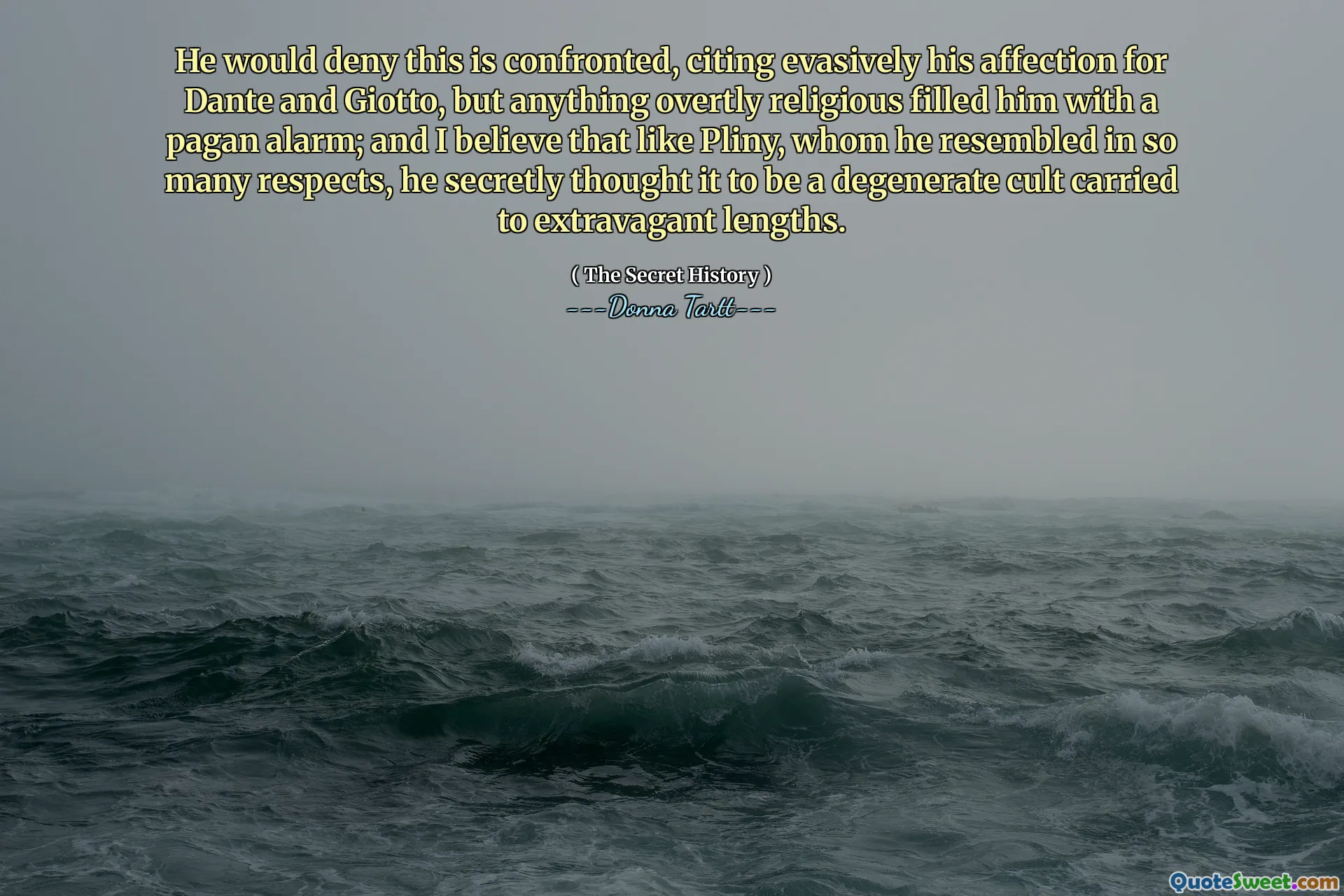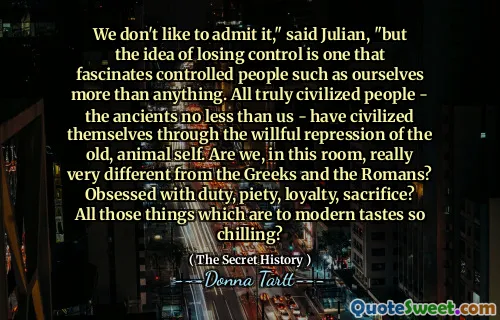
He would deny this is confronted, citing evasively his affection for Dante and Giotto, but anything overtly religious filled him with a pagan alarm; and I believe that like Pliny, whom he resembled in so many respects, he secretly thought it to be a degenerate cult carried to extravagant lengths.
This passage delves into the complex psyche of a character who outwardly avoids confrontation yet internally holds strong opinions about religion and tradition. His admiration for Dante and Giotto—both revered figures of Christian art and literature—suggests a deep respect for cultural and artistic achievements tied to spirituality. However, the tension emerges as he perceives overt religiosity with suspicion, reacting with a 'pagan alarm.' This response indicates a conflict: while appreciative of religious artistry, he perceives certain manifestations of faith as exaggerated or degenerate, similar to Pliny's disdain for the superstitions and excesses of religion in ancient times. The comparison to Pliny underscores a nostalgic or critical attitude toward religious practices, viewing them as potentially corrupting or misguided. Such ambivalence reveals a recurring theme in literature—the dichotomy between aesthetic admiration and the critique of dogma. The character's clandestine thoughts suggest that despite outward civility or loyalty to tradition, he harbors doubts about the true nature of organized religion and its extremes. This internal struggle mirrors broader questions about faith, culture, and sincerity. It also hints at a broader commentary on the tendency of individuals and societies to elevate certain symbols or practices while secretly questioning their underlying motives or authenticity. Overall, the quote captures the tension between public reverence and private skepticism, illustrating the layered complexity of personal belief and cultural identity.









